Erin Host, a third-year pharmacy student in the University of Minnesota College of Pharmacy, Duluth campus, has been traveling back to her hometown of Aitkin to administer vaccines at GuidePoint Pharmacy.
Host had been asking where they could get involved before Duluth pharmacy students started helping out at vaccine clinics in February.
“I was excited the moment we could get involved,” Host said.
Duluth’s pharmacy, nursing and medical assistant students are helping to drive Minnesota’s COVID-19 vaccine campaign, carrying some of the load for overworked pharmacy employees and nurses.
ADVERTISEMENT
“We’ve never grown up in a time when there’s been brand-new vaccines, so it was really exciting to see something go through the entire process, even though it was at a little bit of an accelerated pace,” Host said.
Her classmate, Erin Salo, travels to Brainerd to assist with vaccinations at the GuidePost pharmacy there. Students help out whenever they’re needed, whether that’s vaccinating patients or reconstituting vaccines.
“A lot of times it's just two pharmacists who are going at it all day and you don't really get much of a break because you’re poking arms all day,” Salo said.
Host and Salo are only a couple of Duluth pharmacy students who have been squeezing vaccine clinics into their already busy schedules of school and work or internships. Students have scattered throughout the region and the state, traveling to the metro region and as far south as Rochester. They have also helped staff the St. Louis County Public Health vaccine clinic in Pike Lake on Saturdays.
“There's a rush that you get when you're helping out at a COVID clinic and it just feels so good to be there,” Salo said. “Sometimes I don't necessarily even care that I lose enough sleep.”
As more pharmacies are allocated vaccines, more small pharmacies are having to juggle vaccinating patients with their regular work. Even before the pandemic, pharmacy staff were overworked.
Timothy Stratton, a professor in the U of M College of Pharmacy in Duluth, said pharmacies have contacted the college saying they could use student volunteer help for 40 hours a week. While that’s not possible because of their student schedules, Stratton said he’s proud of the way they have stepped up and pitched in where they can.
“They're busy people, for sure, and the way that they have volunteered to go out and help, I couldn't be prouder,” he said.
ADVERTISEMENT

Pharmacy students are required to get an introductory experience with a pharmacy for class and complete a certain number of intern hours. Working at a vaccine clinic can satisfy either of those requirements. And some students, like Larissa Ostfeld, are volunteering their time.
Ostfeld, another third-year U of M pharmacy student, has been coordinating the student involvement as well as getting around to all the clinics Duluth students are helping at. Much of her time spent vaccinating has been at long-term care facilities.
The facilities often set out juice and crackers during those clinics. She’s had patients make her a card with her name on it and gift plant.
“It's like going to a little mini-party a couple times a week, which is fun,” Ostfeld said.
LSC, St. Scholastica assist county clinics
Susan Thoreson, a nursing student at Lake Superior College, has driven down to Duluth from Tofte every Wednesday for the last month to help at the St. Louis County Public Health vaccine clinics.
“Any real-world experience I can get, I’m going to take,” Thoreson said. “I'm really grateful to the county and the college … that they were able to give the students a little more hands-on experience.”
ADVERTISEMENT
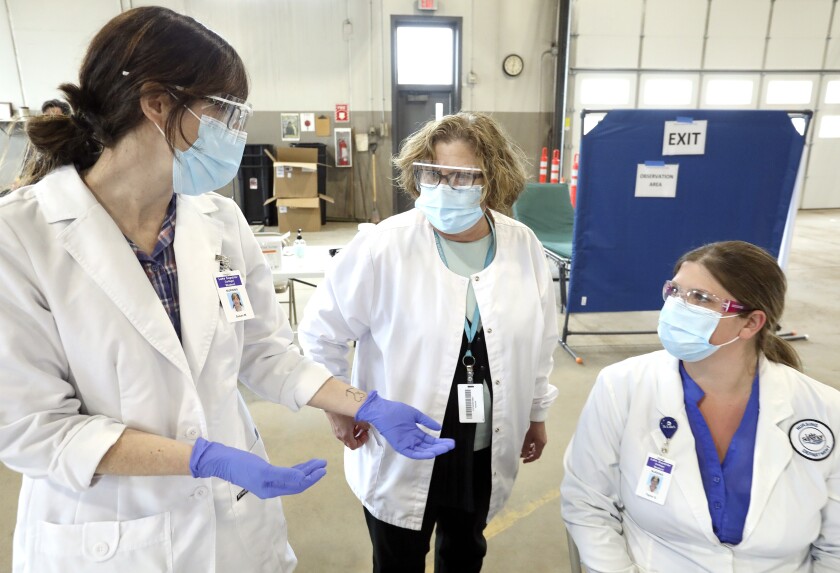
She will graduate with a two-year nursing degree in May. Because the bulk of her nursing school journey has been during the pandemic, she’s only had a handful of days getting experience in a health care setting.
LSC faculty supervise their nursing and medical assistant students at the clinics.
Deb Amys, the college’s director of nursing programs, said the county reached out to the college in early February to ask if any students could help. Only students who have gone through the program's course on medications and received training to give injections can volunteer.
“It's been a very positive experience to be able to participate in this,” Amys said. “I can also say the St. Louis County Health Department employees … they are very well organized and they have been fabulous to work with.”
St. Louis County currently has four vaccine clinics. Public health nurse Emily Lian is responsible for making sure all of those clinics are staffed Wednesday through Saturday. The bulk of the people staffing the clinics are volunteers and students.
The county has 35 public health nurses, which means it relies on outside help to run the vaccine sites. About 65 people contribute their time as volunteers through Minnesota’s response system, as well as a rotation of students from four different campuses. Collectively, the four sites are pushing through more than 1,500 vaccines a day.
ADVERTISEMENT
“We are very thankful for these volunteers. I think about it a lot. They are unpaid volunteers who are donating their time to us to help us. We could not do this without them,” Lian said. “The students have been awesome.”
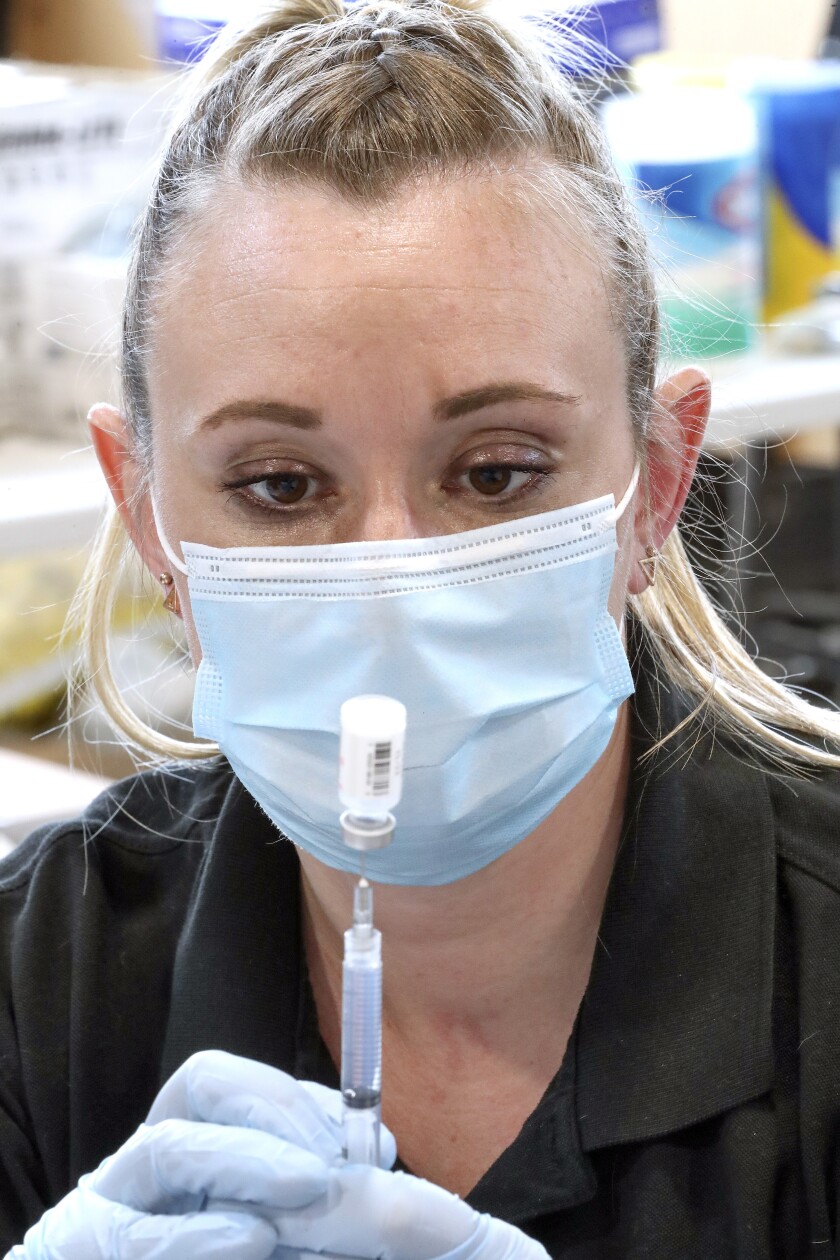
Asked what the last year has been like for public health nurses, Lian said all of the responsibilities that have fallen on the shoulders of public health nurses have been overwhelming, but getting to bring joy and relief to people through a vaccination has made it all worth it.
“We all feel so honored to be vaccinating people,” Lian said.
In between vaccinating people, Jenna Unden, also an LSC nursing student, sanitized her gloves, peeled Band-Aids from their casings and waved people over to her table.
She was one of eight LSC students at the clinic April 7.
“You feel so helpless during this pandemic and now I feel like I actually got to be a part of something and I actually got to help,” Unden said. “When I found out about this, I had to do it.”
ADVERTISEMENT
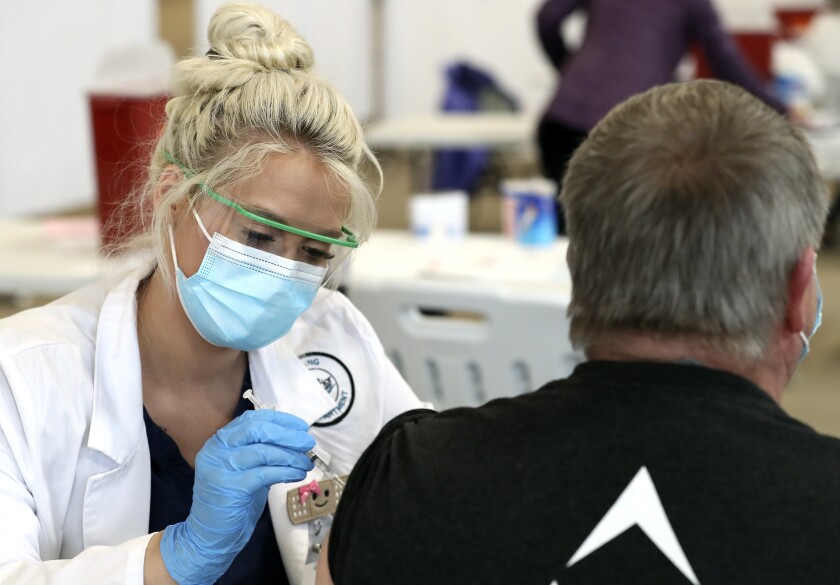
Unden said she looks forward to telling her future children about helping her community out of a pandemic. Her first time giving any kind of injection was only a couple of weeks ago. Forty shots later, she feels like a professional.
Sheri Henry, medical assistant program director at LSC, also has students helping out at the clinics. She has 19 students in her program and hopes they will take a rotation at the vaccine clinic.
“It's not only a great experience for them, they're making history,” Henry said. “For them to have the opportunity to go out and volunteer and be one of those frontline persons in a real life situation, that's making history.”
When Henry heard the county requested help from the college’s nursing program, she asked if her students could get involved, too.
Because the pandemic has hijacked many clinical opportunities for medical students, the College of St. Scholastica's School of Nursing decided to make helping out with COVID-19 testing and injections the requirement.
All 100 of the college's nursing students have to spend 10 hours giving COVID-19 injections or tests to satisfy their community clinical requirement, said Elisa Schmitz, associate professor of nursing.
ADVERTISEMENT
"We thought, 'Well that would be a great way to serve our community,'" Schmitz said. "Some of them just really loved it, and so they decided to do more."
Despite the fact that the pandemic has prevented opportunities for students, Schmitz said there's never been a better time to teach community nursing.
"We were super excited when we were actually able to provide an opportunity for (students) to be a part of that, to really get to see what it's like to be a public health nurse, to see how useful they are and all the different roles that they play," she said.
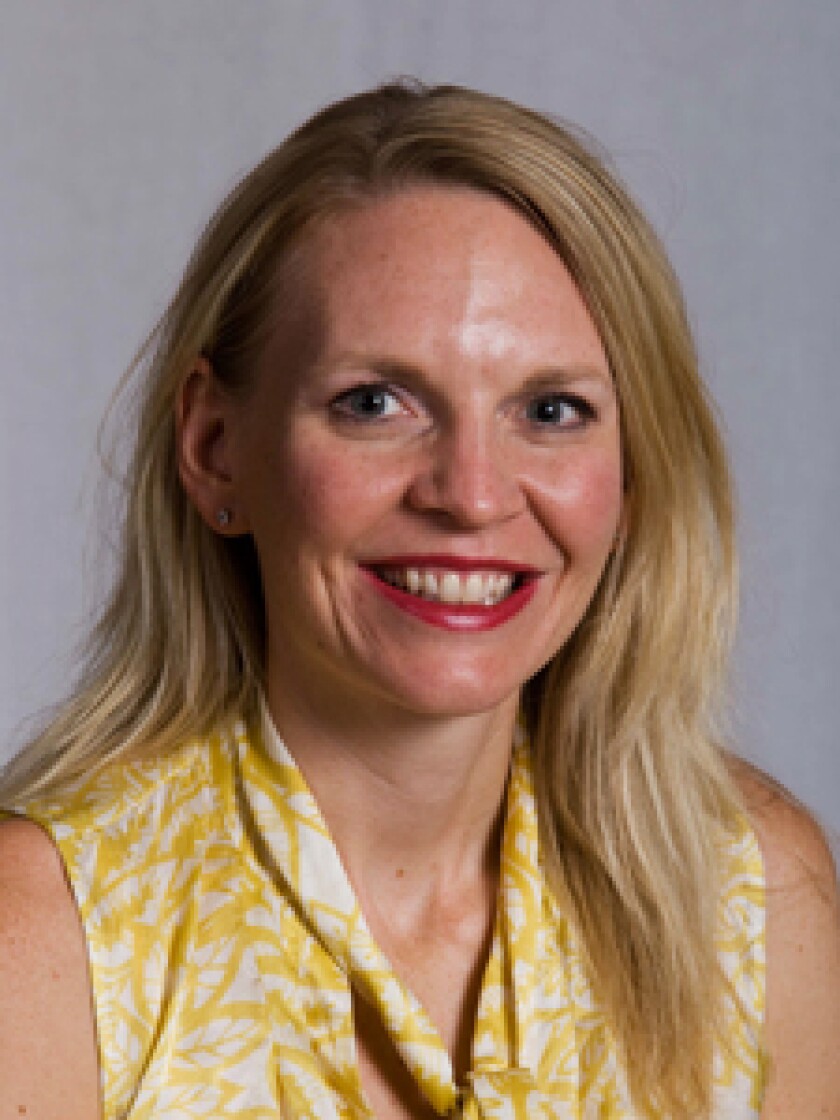
The students have been helping out at both the county's vaccine clinics and at Essentia Health in Duluth and Superior. Faculty oversee the students at the county clinics, while staff nurses oversee them at Essentia.
"One reason faculty need to be there at St. Louis County is because we're trying to help them out rather than pull staff from what they would be doing," said Michelle Hoffman, assistant professor of nursing at St. Scholastica.
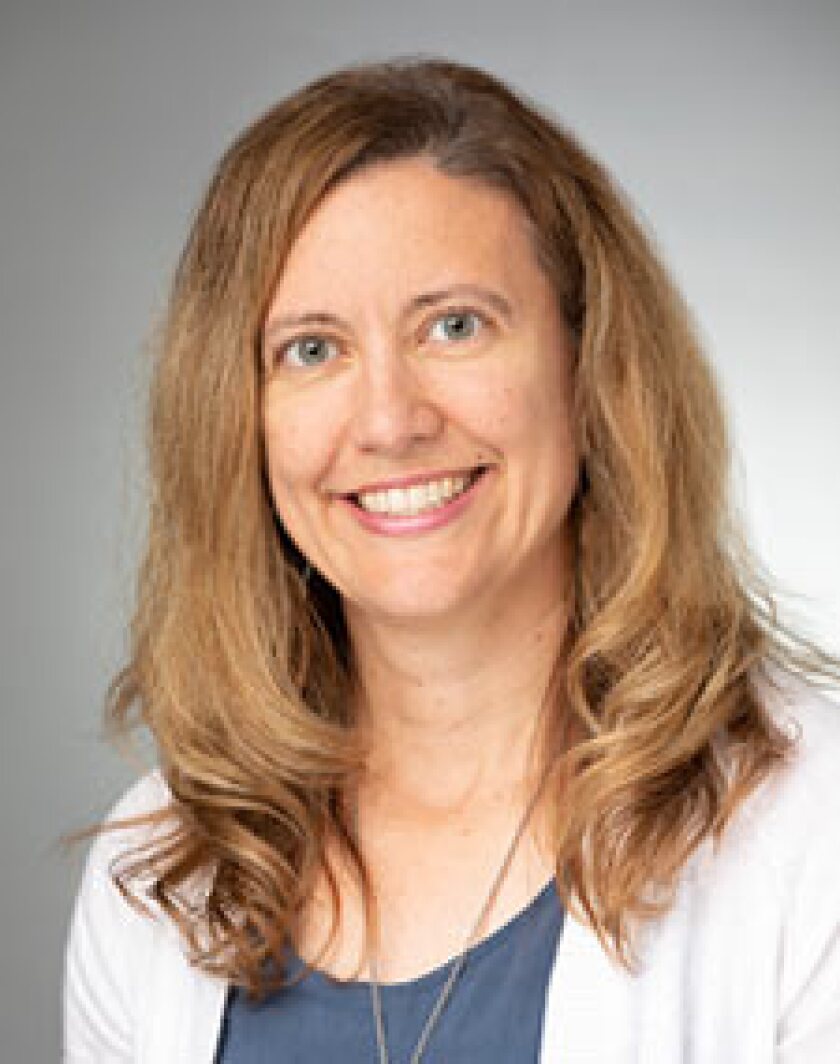
“They're making a big difference,” St. Louis County Public Health Nurse Rillis Eklund said of the students. “They're vaccinating a lot of people at each of our clinics. They're very eager to practice that skill of giving an injection.”
Like many of her nursing colleagues, Eklund said she looks forward to a long, post-pandemic vacation.
“I've never taken a two-week vacation in my entire career,” Eklund said. “I'm definitely going to do that once things settle down and we get back to a schedule that looks somewhat more normal.”








